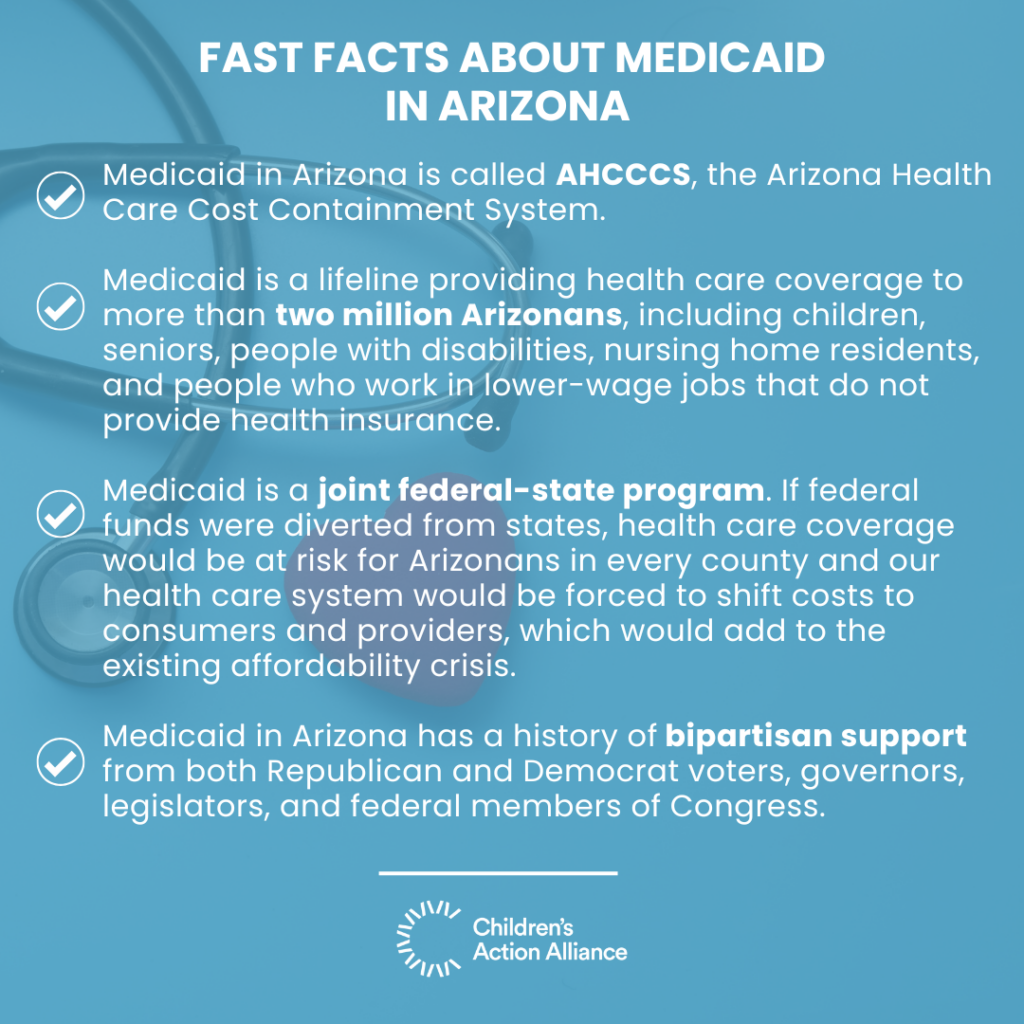Health care services delivered in schools are an opportunity to meet children where they are and deliver critical health services in a setting where they spend most of their time. School-based health services are especially important in low-income and rural communities where access to health care services is limited or difficult to access.
The Individuals with Disabilities Education Act (IDEA) ensures that students with a disability are provided with a Free Appropriate Public Education that is tailored to their individual needs. Outside of specific local and state funding efforts to support these needs, the Medicare Catastrophic Coverage Act authorized federal funding to provide medically necessary services to students per their Individualized Education Program (IEP) or Individualized Family Services Plan (IFSP). In 1995, local education agencies (LEAs), also known as school districts, became eligible providers under the Medicaid program to receive reimbursement for services provided in the school setting. With this, school-based Medicaid became a joint federal and state program that funds certain medical and transportation services to eligible students.
The Medicaid School-Based Claiming Program
Access to school-based health services is critical to improving health and academic outcomes for students. In Arizona, the Medicaid School-Based Claiming (MSBC) Program is the state’s school-based Medicaid program, where the Arizona Health Care Cost Containment System (AHCCCS) reimburses LEAs for providing medical and transportation services to eligible students. There are three revenue funding streams available within the MSBC Program, which include:
- Direct Service Claiming (DSC)- where eligible providers log and bill certain Medicaid-covered services for payment
- Medicaid Administrative Claiming- where reimbursement is included for routine administrative outreach activities within the school setting through a quarterly cost report
- Annual Cost Settlement- where reimbursement is included for costs associated with the medical and transportation services that are included on an annual cost report that is then reconciled with the DSC paid claims
In 2014, the Centers for Medicare and Medicaid Services (CMS) issued a letter to State Medicaid Directors addressing the reversal of the long-standing ‘Free Care’ policy. This allowed LEAs the flexibility to claim reimbursement for services beyond those written into an IEP or IFSP. The expansion opportunity serves more Medicaid-enrolled students who have another medical plan of care, where medical necessity has been established. This program expansion opportunity, called ‘Open Care,’ was introduced by AHCCCS in 2021 and increases Medicaid reimbursement for LEAs that participate in the MSBC Program.
Impact of Medicaid Cuts on Students with Disabilities in Arizona
Proposed Medicaid cuts pose a significant threat to student health services, particularly affecting students with disabilities. LEAs depend on Medicaid to fund essential services such as nursing, mental health counseling, and specialized therapies. A survey1 by the Healthy Schools Campaign revealed that:
- 80% of LEAs anticipate staff reductions in health services
- 70% expect cuts to mental and behavioral health programs
- 62% foresee decreased resources for assistive technologies if these cuts proceed
Such reductions could hinder academic performance and well-being, especially for students with disabilities who rely on these critical supports.
For Arizona students, these proposed cuts would severely disrupt school-based health services provided under IEPs. In 2023, 51,237 students received Medicaid-covered services, and 85% of Arizona students attend schools enrolled in the MSBC Program.2 Critical services at risk include nursing care, such as medication administration, as well as behavioral health support, including therapy, counseling, and psychological testing. A full list of services and provider types eligible for Medicaid reimbursement can be found here. With Medicaid funding essential for these programs, Medicaid cuts would force LEAs to shift resources or eliminate services altogether, threatening student health, academic success, and overall well-being.
CAA Role and Next Steps
Children’s Action Alliance (CAA) has continued efforts highlighting the importance of the MSBC Program, specifically with the Open Care expansion, by working with stakeholders and increasing program awareness. Although the program has expanded, CAA has identified a need for greater awareness about the MSBC Program, including how to participate, what types of services are eligible, and that MSBC-participating LEAs can now submit for reimbursement through Open Care. As most Arizona students are attending an LEA that participates, there is still a strong desire for increased participation and utilization throughout the state.
AHCCCS is also adding additional changes and flexibilities through a State Plan Amendment (SPA) based on 2023 CMS guidance. Although the submission of the SPA is currently delayed following the threats at the federal level, CAA is taking this opportunity to continue to work with AHCCCS, LEAs, billers, and other stakeholders to promote the program and increase program comprehension. As we are unsure of what the changes at the federal level will bring to the MSBC Program, CAA does know that the MSBC Program is important and is a vital funding stream for many LEAs in the state.
CAA acknowledges that potential cuts to Medicaid not only impact the health and well-being of students, but also puts added financial pressure on LEAs.
“With Medicaid cuts, the salaries for the current related services staff would then have to be taken out of the general fund, which has a negative ripple effect on all student services.”— Director of Special Education, Arizona
With the current fight to protect Medicaid, know that Medicaid in schools remains a CAA priority. For more information and to learn how to participate if you are at an LEA that does not currently participate, please click here.
If you are interested in being a stakeholder and/or would like to find solutions to increase program comprehension, please e-mail CAA’s Director of Early Learning and Education, Kyrstyn Paulat, at kpaulat@azchildren.org
1 Health School Campaign. (March 12, 2025) New Report: How Medicaid Cuts Will Harm Students & Schools. https://healthyschoolscampaign.org/blog/report-how-medicaid-cuts-will-harm-students-schools/
2 Arizona Health Cost Containment System. (2024) Medicaid School-Based Billing Fact Sheet. https://www.azahcccs.gov/PlansProviders/FeeForServiceHealthPlans/ProgramsAndPopulations/thirdpartyaccounts/SBC.html




